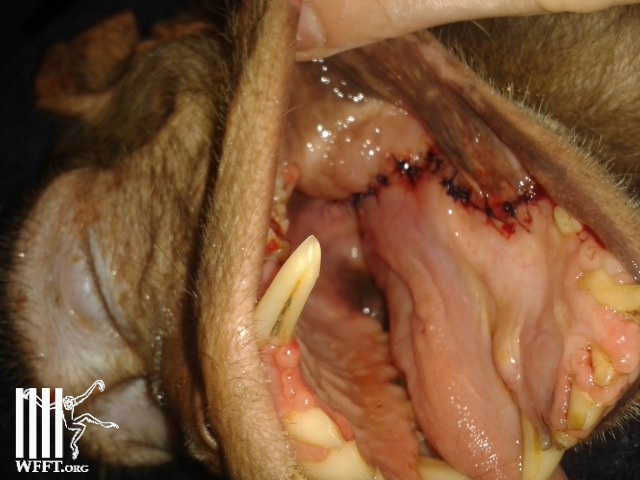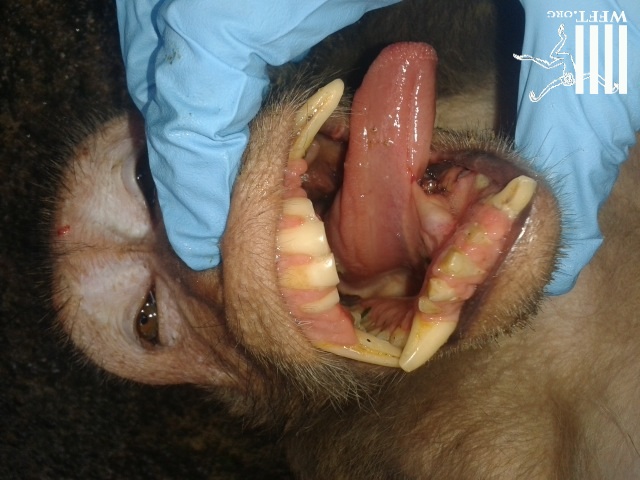A big step forward! An MOU has been signed with the coconut industry and authorities to phase out monkey labour and exploitation in coconut harvesting.
WFFT hospital busy with wild monkeys
Challenging surgery on macaques
Populations of city-dwelling long tailed macaques are increasing and so are the injuries that result from their urban lifestyle. The WFFT wildlife hospital team have been busy this month treating sick and injured long tailed macaques from the nearby city of Petchaburi.
‘Gob’ an adult male, also lived at a temple with his troop before he developed a debilitating tumour inside his mouth. 3 visits to the temple were required to finally capture this shy monkey and it was only when we examined him closely we could see just how much pain he was in.
The tumour had grown to fill the entire mouth making eating extremely difficult and, worse yet, it was starting to press on his airway. Samples were analysed and it was decided that the only hope for Gob was to remove the enormous 10cm long mass from his jaw. Unfortunately the sheer size of the lump and difficult location make removal and post-operative care extremely challenging, especially in a wild animal who cannot be tube fed. Gob’s jaw is so deformed from the growth that, even after removal, he has to learn how to eat again using only one side of his mouth.

A week after surgery “gob” is checked again and we see a steady improvement.
‘Brenda’, or ‘babs’ as she has become affectionately known, is a chunky adult, female who was hit by a car at the end of September. Despite her shattered right leg she is a feisty character and was a challenge to dart and capture. A complex fracture of her femur required specialist plate and pin surgery but she is recovering well despite her ability to destroy every bandage! Babs requires a few more weeks rest before we see if her leg is strong enough for release back to the wild.
‘Hoggle’, a shy baby boy was attacked by dogs when he ventured away from his mother at their temple home. He has undergone 3 surgeries to repair deep wounds to his right leg and although he will never regain perfect use of the foot, we are confident he can cope in the wild if his mother will accept him after the weeks they have spent apart.
Wild monkeys have fully developed wild instincts and are a challenge to handle. Even temporary captivity and basic treatments can be extremely stressful so we aim to get them rehabilitated and, if possible, released quickly and with minimal handling.
WFFT receives financial aid from the International Primate Protection League (IPPL) in South Carolina to help monkeys, lorises and gibbons. Without IPPL we could not rescue so many primates as we currently do.








